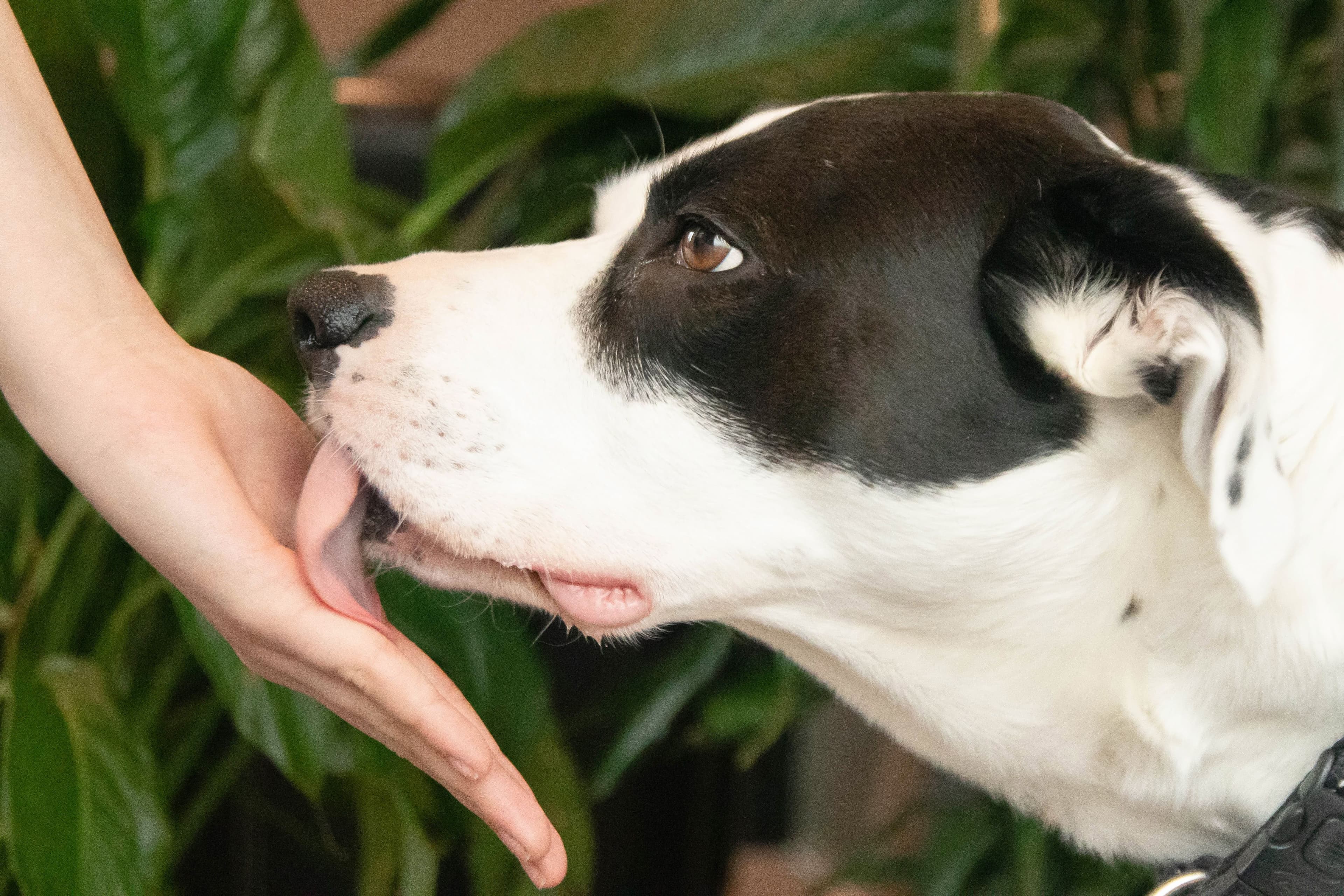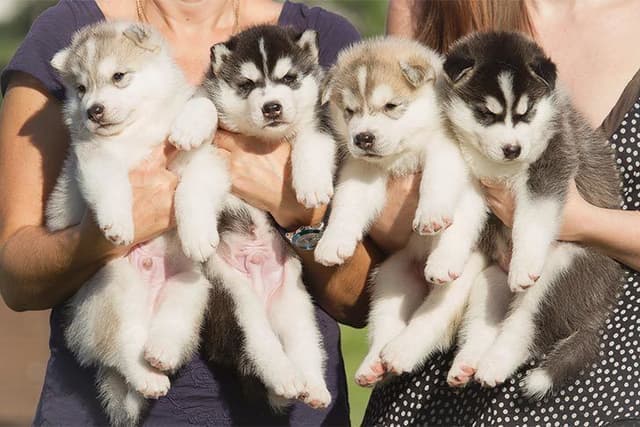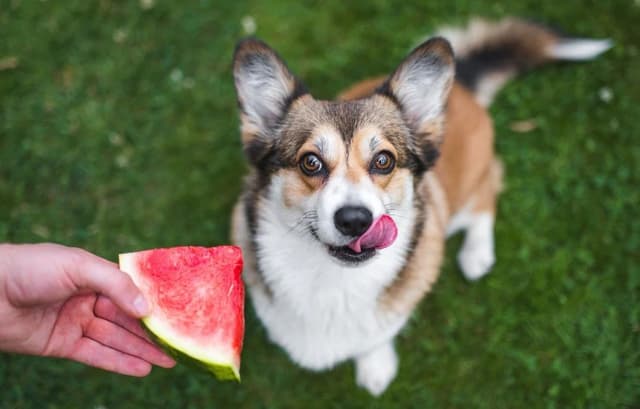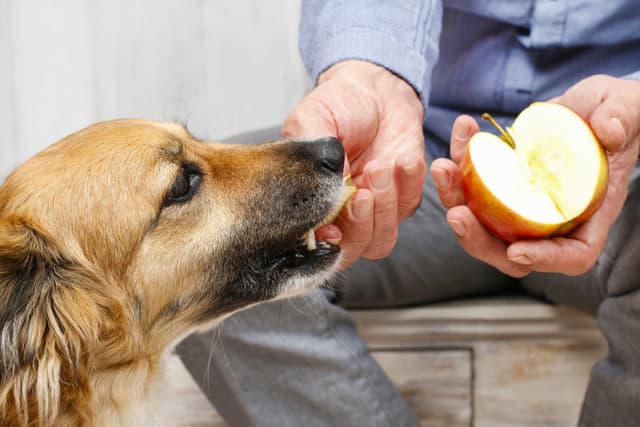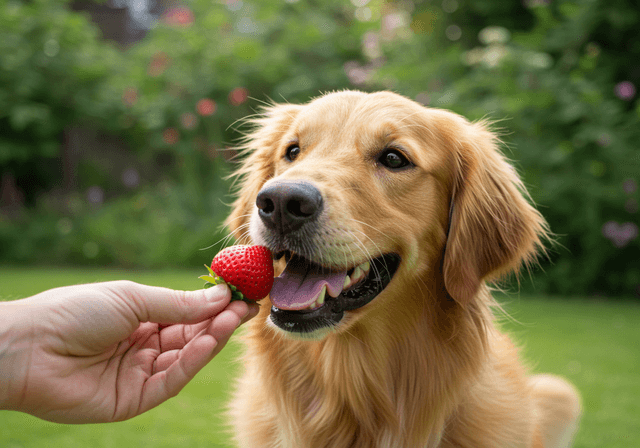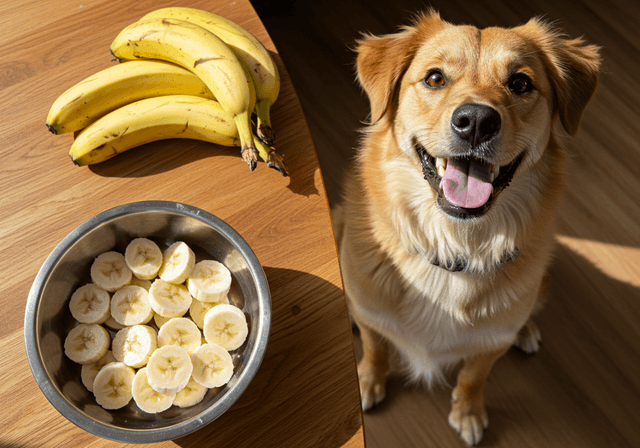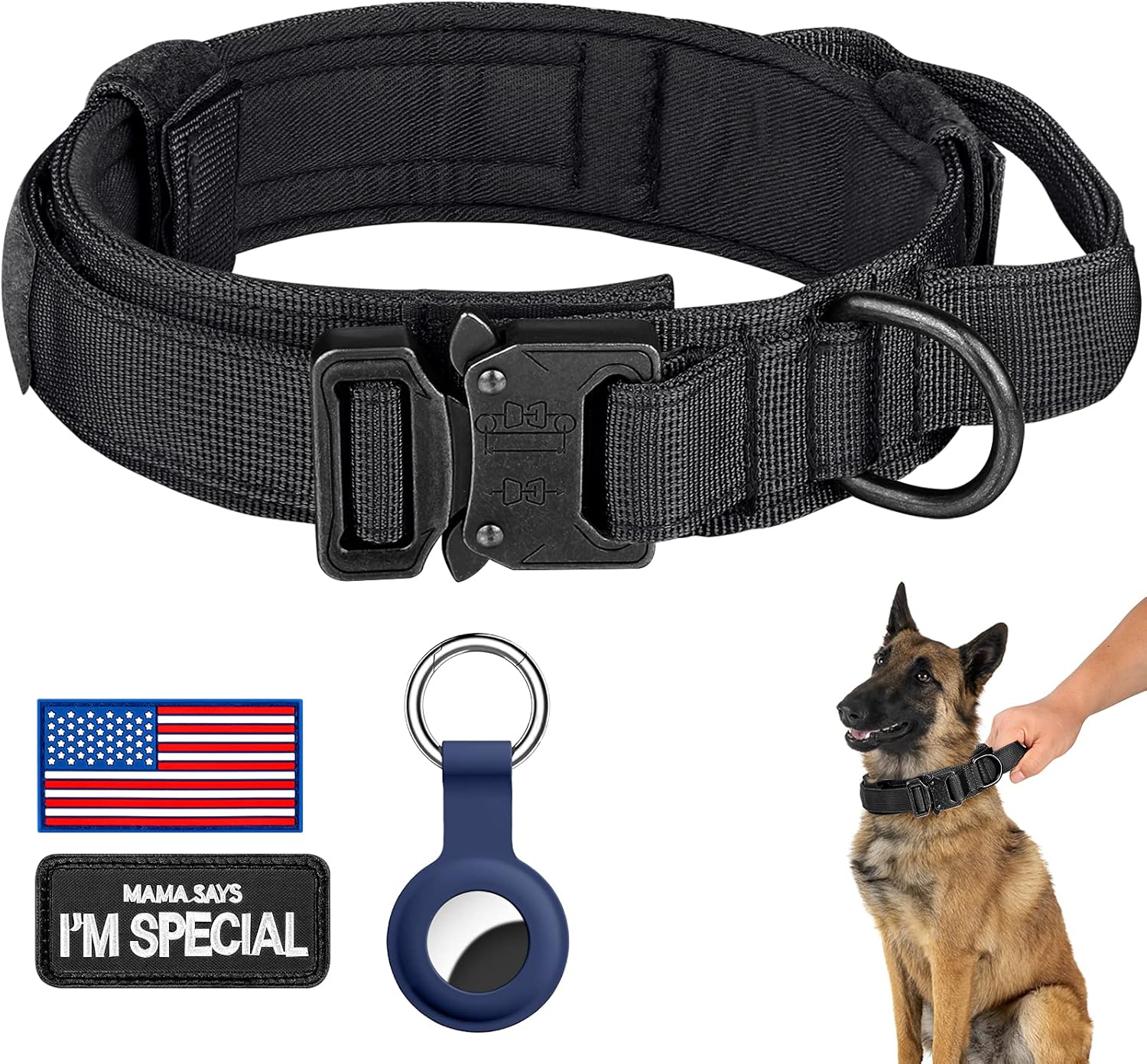The Allure of the Lick
Have you ever considered that a dog's lick might be their way of "reading" you?. It's more than just a quirky habit; it’s a fundamental part of how they experience and interact with their world, and with us. Those canine "kisses" are packed with purpose, and understanding them can bring you even closer to your four-legged companion.
The Science Behind Dog Licking: More Than Just Slobber
At its core, licking is a behavior driven by some pretty interesting science. It’s not random; there are physiological and psychological factors at play.
- The Feel-Good Factor: When dogs lick, their brains release endorphins, which are natural mood boosters. This creates a sense of calm and pleasure, making licking a self-soothing activity, especially when they might be feeling a bit anxious or stressed.
- Bonding Hormones: Licking can also trigger the release of oxytocin, often dubbed the "love hormone" or "bonding hormone". This happens when dogs lick each other, and it's believed to extend to their human family members too, strengthening that special connection.
- An Information Super-Tongue: Dogs have an incredible sense of taste and smell. Licking is a primary way they gather information about their environment, objects, other animals, and, yes, you!. They're exploring the world one taste at a time. This exploration can even involve detecting pheromones, which can give them clues about the emotional state or health of another animal, including humans.

Understanding these biological drivers helps us appreciate that licking isn't just a casual gesture. It’s a behavior with deep roots in a dog's need for comfort, connection, and understanding of their surroundings. This knowledge shifts our perception from seeing licking as merely a "dog thing" to recognizing it as a vital part of their sensory and emotional toolkit.
Communication and Bonding: Speaking in "Lick"
Beyond the basic science, licking is a powerful tool for canine communication and a cornerstone of the bond they share with us.
- "I Love You!" - Expressions of Affection: One of the most common reasons dogs lick is to show affection. Think of it as their version of hugs and kisses. This behavior often traces back to puppyhood, where mother dogs lick their young to groom and comfort them. When your dog licks you, they're often reinforcing that loving bond.
- "Pay Attention to Me!" - Seeking Interaction: Dogs are smart cookies! They quickly learn that licking you often gets a response—a pat, a kind word, or even a treat. If they’re feeling a bit neglected or just want some playtime, a few well-placed licks can be an effective way to grab your attention. This learned behavior means that your reactions play a significant role in how often they might offer these "kisses."
- "You're the Boss!" - Signs of Submission and Respect: In the canine social structure, licking can be a gesture of submission or appeasement towards a more dominant member of the pack. When your dog licks you, especially around the mouth, they might be acknowledging your role as the leader of their "human pack". This act can reduce tension and reinforce social harmony.
- Pack Dynamics and Connection: Dogs are inherently pack animals, and licking is a way to reinforce social ties within their pack. When your dog licks you, they're essentially saying, "You're part of my family, and I value our connection." This deepens the understanding that licking is not just about what the dog gets from it (like attention or taste), but also about what it gives – a reaffirmation of belonging and mutual care.

Recognizing these communicative aspects of licking allows for a richer interaction with our dogs. It’s not just about tolerating or enjoying the licks, but about understanding the messages they’re trying to convey, which can lead to a more responsive and empathetic relationship.
Instincts and Social Behavior: Echoes of the Wild
Many of your dog's behaviors, including licking, have deep evolutionary roots, harking back to their wild ancestors.
- Puppyhood Licks - A Lesson from Mom: The very first experience a puppy has with licking comes from its mother. She licks her newborns to clean them, stimulate breathing and elimination, and provide comfort. This early, nurturing interaction establishes licking as a fundamental form of care and communication.
- "Feed Me!" - The Ancestral Food Request: In wild canid packs, like wolves, puppies lick their mother's muzzle to stimulate her to regurgitate food for them. While your domesticated pup isn't likely expecting you to do the same (thankfully!), this instinctual behavior can still surface, especially in young dogs.
- Neoteny - Forever Young: Domesticated dogs often retain juvenile behaviors into adulthood, a phenomenon known as neoteny. Licking is one such puppy-like trait that many dogs carry throughout their lives, partly because humans often find it endearing and reward it with affection and attention.
- Social Grooming and Hierarchy: Within a pack, licking serves as a way to groom each other, maintain social bonds, and acknowledge hierarchy. A subordinate dog might lick a more dominant one as a sign of respect. This instinctual social lubrication helps keep the peace and reinforces pack cohesion.

Understanding these instinctual underpinnings helps explain why licking is so ingrained in canine behavior. It’s not just a learned trick, but a behavior shaped by millennia of survival and social interaction. This perspective allows us to see our dogs not just as pets, but as creatures with a rich ancestral heritage that still influences their actions today.
More Than Just Kisses: Health and Hygiene Reasons
While affection and communication are big drivers, sometimes a lick is about more practical matters related to taste, grooming, or even subtle health cues.
You Taste Good!
- It might sound a bit odd to us, but human skin can be quite appealing to a dog's palate. The salty taste of sweat, remnants of food, or even the lotions and creams we use can make your skin an interesting "flavor experience" for your dog. Their keen sense of smell and taste makes them natural explorers of these sensations.
Instinctual Grooming:
- Dogs are natural groomers, though perhaps not as fastidious as cats. They lick themselves to keep clean, removing dirt and debris from their fur.
- This grooming instinct can also extend to their pack members, including you! Your dog might lick you in an attempt to "help you out" with your hygiene, a behavior rooted in caring for fellow pack members.
Potential Health Signals (Proceed with Caution!):
- Licking Wounds: Dogs instinctively lick their wounds. While their saliva has some mild antibacterial properties, it's a myth that it's a cure-all. In fact, excessive licking can sometimes introduce more harmful bacteria or impede healing.
- Focused Licking: If your dog is persistently licking a specific spot on their own body, it could indicate pain, irritation, allergies, or an infection in that area. For example, licking paws excessively might point to allergies, while licking over a joint could suggest arthritis.
- Changes in Licking You: While less direct, if your dog suddenly starts licking a particular spot on your body with unusual intensity, some anecdotal evidence suggests they might be picking up on subtle scent changes related to a health issue. However, this is not a diagnostic tool!

Important Disclaimer: The information above is for general knowledge and observation. It is not a substitute for professional veterinary advice. If you notice any sudden or excessive licking behavior in your dog, or if you have any concerns about their health, always consult your veterinarian. They can help determine if there's an underlying medical cause.
Recognizing that licking can be tied to these factors, especially potential health issues, adds another layer to our role as responsible pet owners. It encourages us to be more observant of changes in our dog's behavior, as these can be early clues that something needs attention.
Here's a quick guide to help decode some common licking scenarios:

This table serves as a general guide. Always consider the overall context and your dog's individual personality.
When Licking Might Be a Concern
While most licking is perfectly normal, sometimes it can signal that something isn't quite right with your furry friend. Knowing when to be concerned is key.
Excessive or Compulsive Licking:
- Is your dog licking themselves, you, or objects non-stop?. This could be more than just a habit.
- Licking that causes skin damage, such as raw spots, hair loss, or irritation (often called "hot spots"), is a definite red flag.
- Sometimes, this can escalate into an Obsessive-Compulsive Disorder (OCD), where the licking becomes a repetitive, seemingly uncontrollable behavior.
Stress and Anxiety Indicators:
- Dogs may lick excessively when they're feeling stressed, anxious, or fearful. This can be triggered by things like separation anxiety, loud noises (thunderstorms, fireworks), changes in routine, or new environments.
- Licking, in these cases, can be a self-soothing mechanism, but if it's the only way they cope, it can become problematic.
Boredom or Lack of Stimulation:
- A dog without enough physical exercise or mental engagement might resort to licking out of boredom. It gives them something to do, but it's not a healthy outlet if it becomes excessive.
Underlying Medical Issues:
- As mentioned earlier, persistent licking of a specific body part can indicate pain, allergies, skin infections, parasites, or even gastrointestinal issues or dental problems. For example, a dog constantly licking its rear end might have anal gland issues. Nausea can also prompt excessive licking of surfaces or lips.

What to Do If You're Concerned: If you notice any of these signs, or if your dog's licking habits change suddenly or seem out of character, the best course of action is to consult your veterinarian.
- They can help rule out or diagnose any underlying medical conditions that might be causing the excessive licking.
- If a medical cause is ruled out, the issue might be behavioral. In this case, your vet may recommend a professional dog trainer or a veterinary behaviorist who can help identify triggers and develop strategies to manage the behavior. This might involve behavior modification techniques, increasing exercise and enrichment, or, in some cases, medication.

Paying attention to these potential warning signs is crucial. Early intervention can prevent minor issues from becoming major problems and ensure your dog gets the help they need to feel their best. It’s about understanding that a change in behavior, like licking, can be your dog's way of telling you something important.
Fun Facts and Myths
Let's clear up some common misconceptions and share a few surprising tidbits about those canine kisses!
Myth #1: A Dog's Mouth is Cleaner Than a Human's.
- We’ve all heard this one! But sorry to burst the bubble, it's a myth.
- Dog mouths contain their own unique blend of bacteria (some good, some not-so-good), just like ours. While different, it's not inherently "cleaner." In fact, some veterinarians even caution about the potential transfer of antibiotic-resistant bacteria from a dog's mouth to human skin, though the risk is generally low for healthy individuals. So, while those licks are often full of love, they're not necessarily sterile!
Fact #1: They Might Be "Tasting" Your Emotions!
- This is pretty cool: dogs can detect pheromones when they lick your skin. Pheromones are chemical signals that can give them subtle clues about your emotional state, like if you're happy, stressed, or sad.
- So, that thoughtful lick might just be them checking in on how you're feeling! This highlights a sensory world far beyond our own and implies a deeper level of non-verbal communication.
Myth #2: Dogs Lick Wounds to Heal Them (The Antiseptic Tongue Myth).
- While dogs instinctively lick their wounds, their saliva doesn't have magical healing powers.
- There are some enzymes in dog saliva that have mild antibacterial properties, but excessive licking can actually introduce harmful bacteria, irritate the wound, and slow down the healing process. It's usually best to prevent them from constantly licking an injury.
Fact #2: The "Salt Lick" Theory Isn't Widely Supported by Experts.
- Some folks believe dogs lick us for the salt on our skin because they have a physiological need for it. While they might enjoy the taste of salt, especially after you've been sweating , experts generally agree that a salt deficiency is not a primary driver for most licking behavior.
- Other reasons, like showing affection, seeking attention, or the endorphin release, are considered more significant motivations.
Fact #3: Some Dogs Lick More When They Are Deeply Relaxed.
- For some pups, those gentle, almost sleepy-time licks are a sign of ultimate contentment and relaxation. If your dog is curled up with you, sighing contentedly and offering soft licks, they're likely feeling very safe and comfortable.
Understanding these facts and debunking the myths not only makes for interesting conversation but also helps us interact with our dogs more safely and knowledgeably. It fosters a more accurate understanding of their behaviors and needs, moving beyond old wives' tales to appreciate the true complexity of our canine companions.
The Many Meanings Behind a Dog's Lick
When your dog showers you with licks, remember it’s more than just affection—it’s a complex form of communication rooted in instinct, learning, and emotion. Dogs lick to say "I love you," show respect, explore their world, or simply because you taste interesting. Understanding the reasons behind this behavior helps us appreciate its deeper meaning and strengthens our bond with our pets. Cherish those slobbery kisses—they’re a special part of what makes dogs such wonderful companions!
Frequently Asked Questions
Q: Is it safe to let my dog lick my face?
A: Generally, yes, for healthy individuals and dogs. However, it's wise to avoid it if you have open wounds on your face. Some vets do caution about bacteria, so it's a personal choice – and perhaps skip the face-kisses if your pup just ate something questionable from the yard!
Q: Why does my dog lick my feet so much?
A: Your feet are a goldmine of scents and tastes (like salt from sweat!). Your dog is likely gathering information, showing affection, or simply finds the unique "eau de you" on your feet interesting. It's a common, usually harmless, doggy quirk.
Q: How can I tell if my dog's licking is excessive?
A: If licking is constant, causes skin damage (on them or you!), seems obsessive (they can't be easily distracted from it), or interferes with daily life, it might be excessive. When in doubt, a quick chat with your vet is always a good idea to rule out underlying issues.
Q: Can licking be a sign my dog is in pain?
A: Yes, sometimes. If your dog suddenly starts licking a specific spot on their body (or even yours, though less common for your pain) more than usual, it could be their way of trying to soothe pain or discomfort in that area. It's definitely worth a consultation with your vet if you notice this.
Works cited
- Why Do Dogs Lick You? 7 Common Reasons | Pumpkin®, accessed June 5, 2025, https://www.pumpkin.care/blog/why-do-dogs-lick-your-face/
- Genius tips - Decoding Dog Behavior: Why ... - Farmina Pet Foods, accessed June 5, 2025, https://www.farmina.com/uk/pet-care/geniustips/1417/decoding-dog-behavior:-why-dogs-lick-your-face.html
- Why Do Dogs Lick Their Owners? An Explainer - We Know Pets, accessed June 5, 2025, https://www.weknowpets.com.au/blogs/news/why-do-dogs-lick-their-owners-an-explainer
- Licking - Peninsula Humane Society & SPCA, accessed June 5, 2025, https://phs-spca.org/licking/
- Why Do Dogs Lick You? 7 Common Reasons - Dogsee Chew, accessed June 5, 2025, https://www.dogseechew.in/blog/why-do-dogs-lick-you-7-common-reasons
- Why Do Dogs Lick? - American Kennel Club, accessed June 5, 2025, https://www.akc.org/expert-advice/lifestyle/why-do-dogs-lick/
- Why Do Dogs Lick Each Other's Muzzles? - Impact Dog Crates, accessed June 5, 2025, https://www.impactdogcrates.com/blogs/puppy-news/why-do-dogs-lick-each-others-muzzles
- Why Does My Dog Lick Me? - American Kennel Club, accessed June 5, 2025, https://www.akc.org/expert-advice/advice/why-is-my-dog-licking-me/
- Decoding Dog Behavior: Why Dogs Lick Your Face - Farmina Pet Foods, accessed June 5, 2025, https://www.farmina.com/us/pet-care/geniustips/1349/decoding-dog-behavior:-why-dogs-lick-your-face.html
- Why do dogs lick? | Dogs licking | Blue Cross, accessed June 5, 2025, https://www.bluecross.org.uk/advice/dog/behaviour-and-training/why-do-dogs-lick
- Why Does My Dog Lick So Much? Understanding Excessive Licking, accessed June 5, 2025, https://www.rearoadanimalhospital.com/the-science-behind-the-slurp-why-dogs-engage-in-excessive-licking/
- Why Do Dogs Lick So Much? | Bond Vet, accessed June 5, 2025, https://bondvet.com/b/why-do-dogs-lick
- Excessive Licking, Chewing, and Grooming in Dogs | PetMD, accessed June 5, 2025, https://www.petmd.com/dog/general-health/excessive-licking-chewing-and-grooming-dogs
- What Does It Mean When Your Dog Licks You, and When Is It a Problem? - GoodRx, accessed June 5, 2025, https://www.goodrx.com/pet-health/dog/why-do-dogs-lick-you
- ASK OUR VeteRinARiAnS - Patton Veterinary Hospital, accessed June 5, 2025, https://pattonvethospital.com/storage/app/media/WhyIsMyDogLickingTheCarpet.pdf
- Why does my dog lick my feet? | The Kennel Club, accessed June 5, 2025, https://www.thekennelclub.org.uk/health-and-dog-care/health/health-and-care/a-z-of-health-and-care-issues/why-does-my-dog-lick-my-feet/
- Why Do Dogs Lick Your Feet: 7 Causes & How to Stop It - PetLab Co, accessed June 5, 2025, https://thepetlabco.com/learn/dog/behavior/why-do-dogs-lick-your-feet
